
The study shows that tirzepatide significantly improves secondary outcomes in patients with sleep apnea.

The study shows that tirzepatide significantly improves secondary outcomes in patients with sleep apnea.

With improved technology and innovations for diabetes, it is essential for health care providers and health agencies to collaborate to combat rising rates of diabetes.

American Diabetes Association Scientific Sessions speaker Ivan de Araujo emphasizes the importance of the pharmacist’s role in diabetes care and his hopes for the future of care.

Pharmacy Times will be at the American Diabetes Association (ADA) 84th Scientific Sessions in Orlando, Florida from June 21 to June 24, 2024.

In a study of individuals with Medicare, the incidence of type 2 diabetes was associated with approximately $30,000 to $98,000 excess lifetime medical expenditures.

All individuals with type 1 diabetes on the therapy had restored insulin secretion, improved glycemic control, improved time-in-range reduction, or elimination of exogenous insulin usage.

The prevalence of undiagnosed diabetes in earlier years in racial and ethnic minorities and lower education groups, leading to a decline in incidence over time.

The collaboration will focus on engaging with health experts and opinion leaders to examine data to gain a better understanding of the role continuous glucose monitoring systems have in personalized therapeutic nutrition.

The results of the study were presented at the 83rd Scientific Sessions of the American Diabetes Association in San Diego, California and were also published in The Lancet.

The American Diabetes Association showcased advancements in diabetes technology revolving around improving glucose control devices and treating diabetic retinopathy at the 83rd Scientific Sessions.

Mary Reed, DrPH, research scientist at Kaiser Permanente, discussed what changes would be necessary to continue providing quality virtual health care to patients with diabetes.

Mary Reed, DrPH, research scientist at Kaiser Permanente, discussed the challenges encountered by health systems and patients during the shift to online care.

Similar effects were seen both with and without an SGLT2 inhibitor, according to investigators.

Mary Reed, DrPH, research scientist at Kaiser Permanente, discussed the changes made to health care practices in light of the COVID-19 pandemic that she would like to see remain in place in the future.

Mikhail Kosiborod, MD, cardiologist and vice president of research at Saint Luke's Health in Kansas City, discussed the implications of the DARE-19 trial results assessing dapagliflozin as a treatment for patients with type 2 diabetes hospitalized with COVID-19.

Mary Reed, DrPH, research scientist at Kaiser Permanente, discussed how COVID-19 forced health systems to shift primarily to telehealth, and the impact this had on patients with diabetes.
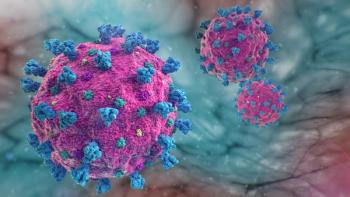
Mikhail Kosiborod, MD, cardiologist and vice president of research at Saint Luke's Health in Kansas City, discussed what some of the adverse events experienced by patients were, and how patients were able to handle them.

Patients with diabetes treated with liraglutide also saw more weight loss compared with patients in the other arms of the study.

Mikhail Kosiborod, MD, cardiologist and vice president of research at Saint Luke's Health in Kansas City, discussed why the research assessing dapagliflozin advanced from cardiorenal effects to prevention and organ protection.
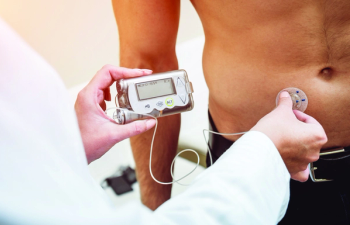
Michael Radin, MD, executive director, Diabetes Cardio Renal Medical Director Team, Medical Affairs, Novo Nordisk, discusses how the results from the phase 3 trial evaluating an investigational 2 mg dose of semaglutide could change treatment options for patients with type 2 diabetes.

Mikhail Kosiborod, MD, cardiologist and vice president of research at Saint Luke's Health in Kansas City, discussed why the results of the DARE-19 trial are important to the field, especially during the COVID-19 pandemic.

Drugs to treat type 2 diabetes using SGLT2 inhibitors are relatively new, with FDA approvals only within the last decade.
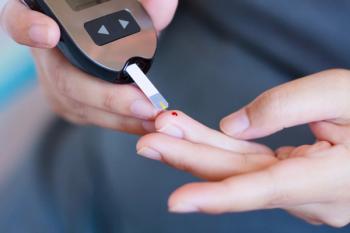
Michael Radin, MD, executive director, Diabetes Cardio Renal Medical Director Team, Medical Affairs, Novo Nordisk, discusses the benefit of the investigational 2 mg dose of semaglutide injection in adults with type 2 diabetes.

Mikhail Kosiborod, MD, cardiologist and vice president of research at Saint Luke's Health in Kansas City, discussed how the phase 3 DARE-19 trial was conducted to assess dapagliflozin in patients with type 2 diabetes hospitalized with COVID-19.
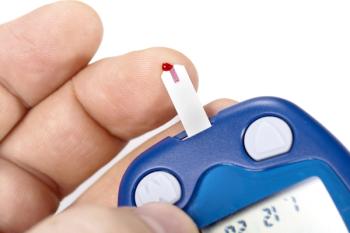
Mikhail Kosiborod, MD, cardiologist and vice president of research at Saint Luke's Health in Kansas City, discussed the findings around the safety profile of dapagliflozin in patients with and without type 2 diabetes hospitalized with COVID-19 during the DARE-19 trial.
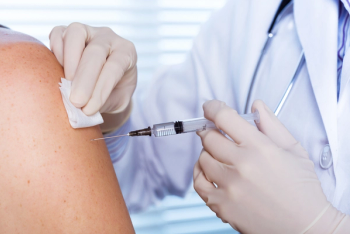
Michael Radin, MD, executive director, Diabetes Cardio Renal Medical Director Team, Medical Affairs, Novo Nordisk, discusses the adverse events experienced by patients during the SUSTAIN FORTE phase 3 clinical trial evaluating an investigational 2 mg dose of semaglutide injection in adults with type 2 diabetes.

Mikhail Kosiborod, MD, cardiologist and vice president of research at Saint Luke's Health in Kansas City, discussed the findings around the efficacy of dapagliflozin in the DARE-19 trial assessing its efficacy and safety in patients with type 2 diabetes hospitalized with COVID-19.

Michael Radin, MD, executive director, Diabetes Cardio Renal Medical Director Team, Medical Affairs, Novo Nordisk, discusses how the SUSTAIN FORTE phase 3 clinical trial evaluating an investigational 2 mg dose of semaglutide injection in adults with type 2 diabetes was conducted.

Michael Radin, MD, executive director, Diabetes Cardio Renal Medical Director Team, Medical Affairs, Novo Nordisk, discusses the findings around the efficacy and safety of the 2 mg dose of semaglutide for the treatment of type 2 diabetes.
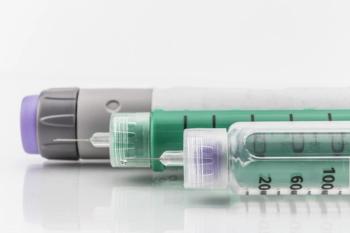
The results from the first phase 3 SURPASS trials showed promising results with tirzepatide in patients with type 2 diabetes.